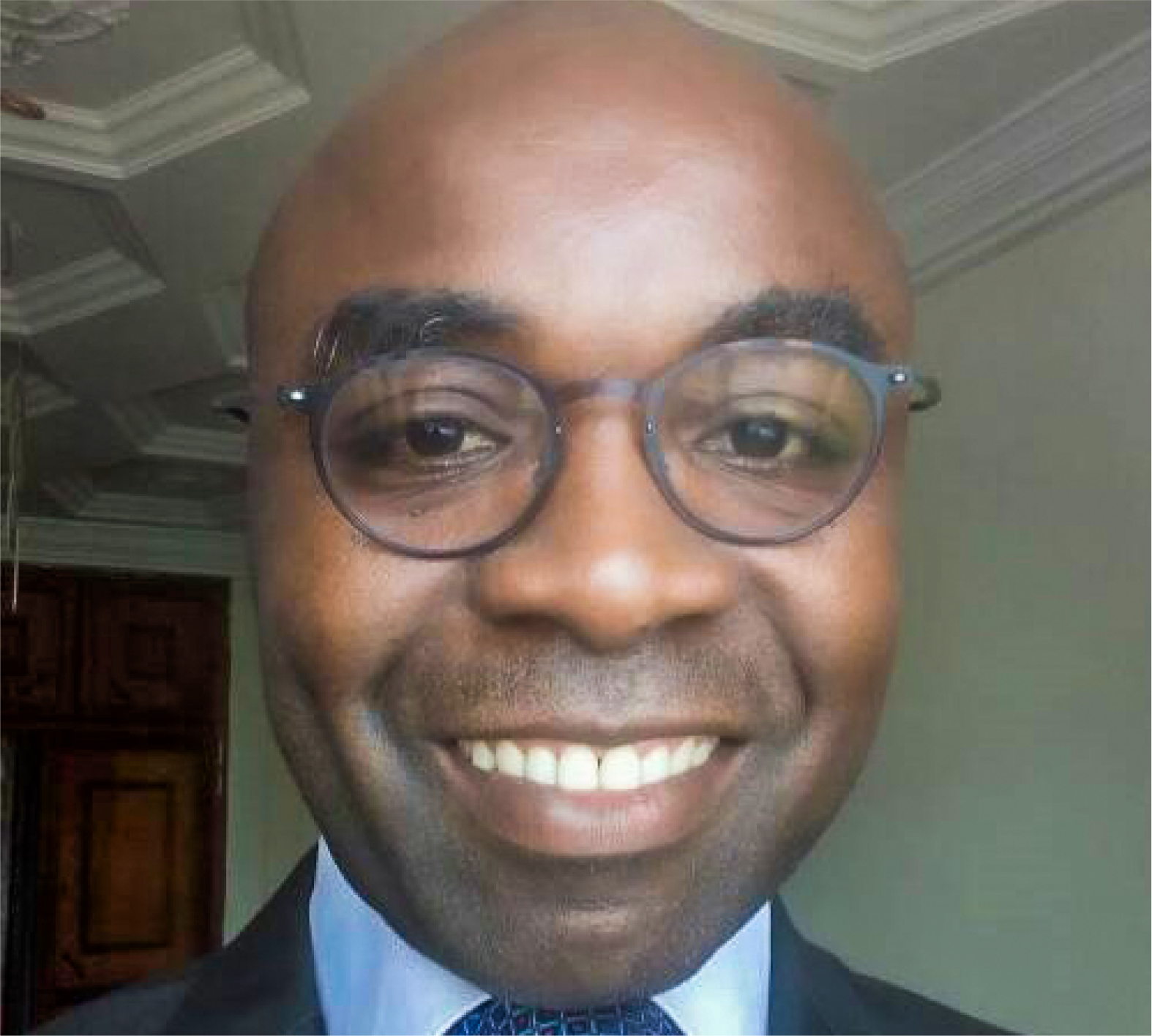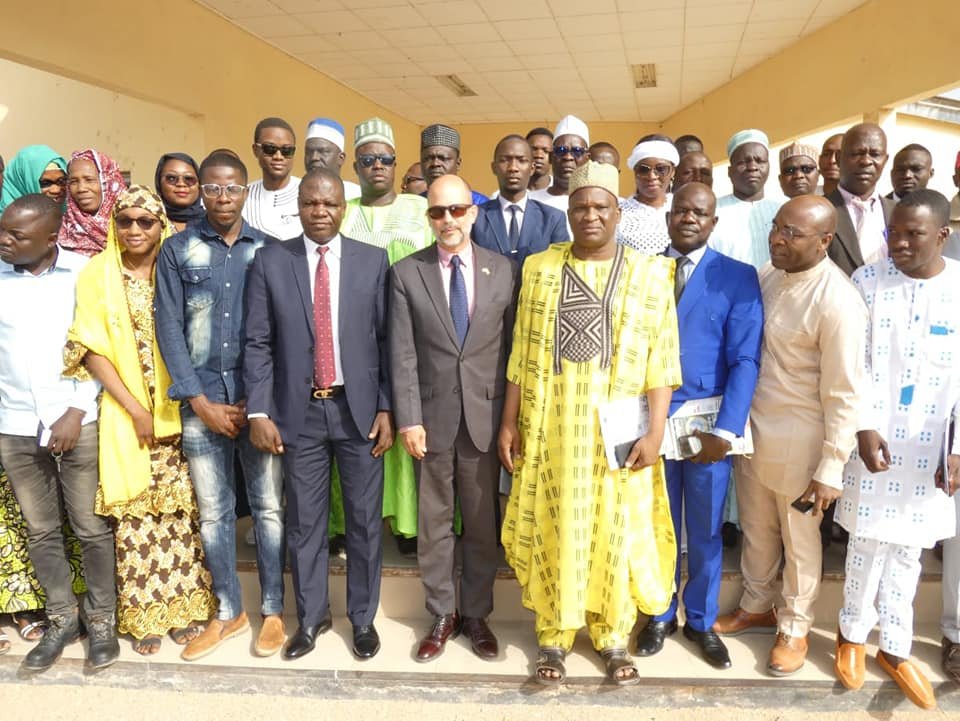AfroLeadership uses coaching to bring more public participation to Africa
/One of the more than 70 members of People Powered is AfroLeadership, a Cameroon-based think tank that promotes sustainable development across the African continent. Here is a lightly edited account of our interview (conducted by Pam Bailey, People Powered communications director) with Charlie Martial Ngounou, AfroLeadership president and member of our board of directors.
Every organization has a founding story. What’s yours?
In around 2002, I was working on my master's degree in management science when I came across a sale of used books on the street; I think someone must have decided to clean out their library, because there were so many books on related topics like nonviolent communication. I chose a book on emotional intelligence by Daniel Goleman. And that’s when I discovered the profession of coaching.
In the course of learning more, I realized that Africa needs great leaders with coaching skills. And that's how my career started.
I created an organization to train and coach African leaders, and I eventually created the name AfroLeadership. But after a while, I discovered that it's very difficult to change things simply by talking about leadership, because it's a bit subjective. It's really difficult to define great leadership. Even Hitler was considered a great leader by some. So, I started thinking I should look at more structured topics, and settled on fiscal transparency. From there, it was a logical step to participatory budgeting and other forms of participatory democracy.
How would you describe the scope of your work?
AfroLeadership is pan-African. But Africa is made of 54 countries and it’s not easy to spread ourselves to that extent. So we decided to build regional chapters, with one office representing two or three countries; for example, West Africa, Central Africa, and the islands for Madagascar, Comoros and Mauritius. We also decided to partner with local NGOs to help us reach the right people, since the topics we speak about are a bit complex to understand at first. Participatory democracy isn’t like human rights, which people are used to hearing about and immediately understand.
We’re more like a think tank than a membership organization. We focus a lot on open data, and that’s always linked to the use of technology to promote transparency and participation. Technology has a special power; it imposes a structure on processes and procedures, and is very difficult to dismantle. It’s like giving people a phone, then trying to take it away. No one would put up with that.
For example, we worked with Global Leaks, a platform that enables safe whistleblowing. We designed an application that facilitates the reporting of electoral fraud, and we clearly saw the impact on voters and the electoral process.
How prevalent is participatory democracy in Africa?
Most African countries are very new to democracy. Burkina Faso experienced a coup recently. Same with Mali and the Congo. Plus the Democratic Republic of Congo is having problems with Rwanda. Cameroon has social crises in the northwest and southwest regions. The terrorist organization Boko Haram is attacking parts of Cameroon, Niger and Nigeria. And the Central African Republic isn’t totally stable as a country right now. So, you can’t operate in this region like you do in Europe, the Balkans or North America.
What this means is that the methods used here must be contextualized. The process for participatory budgeting, for example, is not easy to apply to our context. That's why, when we designed the process for Cameroon, we decided to call it an open participatory budget. It’s not participatory budgeting in the standard sense. If you meet a mayor who is a bit progressive, you can talk about participatory budgeting. But if you meet a mayor who is not progressive, like most mayors or elected leaders here, it’s best to simply talk about opening the doors, like publishing the budget online. In my mind, creating a space where the budget is discussed with citizens, even just on radio or TV, is a kind of participation. We can’t be too harsh in assessing the region.
Charlie, bottom row, fourth from right, at the announcement of an “open participatory budget” in Cameroon
How would you describe your strategy in tackling this challenge?
First of all, we want to demonstrate we are a credible partner for governments, because in my view, if our leaders’ mindset stays the same, change won't happen. The more we have champions in government, both central and local, the faster we can progress.
I don't believe in a confrontational relationship between civil society and government. Again, it’s important to understand the context. In some countries, there’s a separation of power between, for example, the judiciary and other sectors. In most countries in Africa, it is difficult to notice this separation. The executive seems to have all the power. In parallel with the government, you also have the ruling party, which acts as sort of a parallel government. So, the parliamentarians who are associated with the powerful ruling party mostly just vote on proposals from the executive. That means you have to work with the executive if you want to change anything.
That's what AfroLeadership tries to do. We endeavor to work with public administrations and line ministries. For the Cameroon Open Participatory Budget Project, for example, we formally requested technical and financial support from the ministry in charge of decentralization, as a tactic to open the door to collaboration. We showed them that one of the key barriers to opening up local governments is the fact that they’re not digitally aware. And so, I said, let's start by making all local governments -- and there are almost 400 -- have at least an updated website. (I did a review in Cameroon, and found that about 280 didn’t even have a website. And of those who had one, 60% weren’t secure.)
After that, we suggested that local governments publish at least budget information online. A third phase will be calling on them to publish more data, like the list of authorized schools. In African countries, many kids are enrolled in fake schools. Parents pay for them, but they are fake. Same with medical centers. In this way, we are coaching the prime ministers’ offices, along with the national programs on governance, fiscal transparency and participation.
In Africa, so many mayors won't publish anything, and nobody cares. Sure, if you offer them financial support for participatory budgeting, they will tell you, “OK, let's go for it.” But as soon as there’s no funding, they won't do it anymore. So, our first priority is to build transparency and accountability. People behave like they do because it fulfills their own interests. To bring about change, you need to help them see how it can serve their own interests too, more than the current situation. Because if it is the same, they won't change.
AfroLeadership is a member of our Building Inclusive Democracy initiative, for which you just helped coordinate a workshop on displaced people. To what extent is this an issue in Africa?
It's a great challenge, especially in terms of technology — but not just in Africa. It's a challenge even for those who are not displaced. But for those who are, it’s like a multiplier effect. Because when you are displaced, without reliable shelter or food, everything is risky.
Actually, even for some of our governments, technology can be a challenge, because their uptake is very recent. To use technology, which breaks down barriers, you have to buy into a bit of openness. But in most African countries, the government is a bit closed; officials hold on to an autocratic tradition, in which they talk like the government is the brain and everything else is the hands and feet. And that's why technology adoption in most countries in Africa is a mess.
Where on the continent have you seen the most success?
Benin has one of the best governments, in terms of its relationship with CSOs and willingness to be transparent.
But progress is possible even in conflict states. I’ve been working with the Central African Republic to install a financial system. And Barredo, our representative, is doing the same in Somalia.
What about AfroLeadership? What do you see as your biggest success, and your next goals?
I’d say it's our work to secure very sustainable partnerships. We have formed three partnerships related to data governance in Africa, including collaborations with aNewGovernance, PLACE and MyData. For the International Aid Transparency Initiative, AfroLeadership is both a member and on the governing board.
To develop that leadership further, we hope to build an African team to work with the online platform Decidim, then support local CSOs and governments in its use. We don’t have a history of digital participation on the continent, so the advantage of developing a working relationship with a platform like Decidim is not only to entrench processes by digitizing them, but also to archive them.
The Participation Playbook [just developed by People Powered and its partners] will be very useful to use along with this initiative, when we train people. In Africa, people don't know what they don't know when it comes to participation. The playbook offers a standardized way to learn the basics. Of course, it is limited because it can’t take into account every consideration that could happen, but the mentorship program can help with that.
Actually, if the People Powered Guide to Digital Participation Platforms, and the companion ratings had been available to me when I did my research and chose Decidim, it would have been very helpful. Some of the platforms are very highly priced, especially when you want to add modules. Making the right choice is critical.






